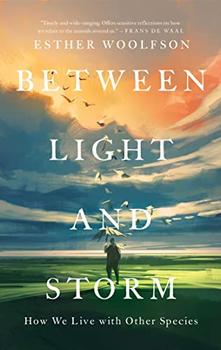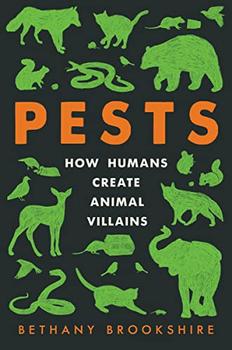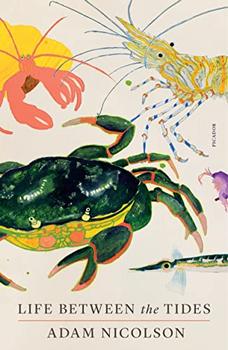Summary | Excerpt | Reviews | Beyond the book | Read-Alikes | Genres & Themes | Author Bio

How We Live with Other Species
by Esther WoolfsonA landmark examination of the fraught relationship between humans and animals, taking the reader from Genesis to climate change.
Beginning with the very origins of life on Earth, Woolfson considers prehistoric human-animal interaction and traces the millennia-long evolution of conceptions of the soul and conscience in relation to the animal kingdom, and the consequences of our belief in human superiority. She explores our representation of animals in art, our consumption of them for food, our experiments on them for science, and our willingness to slaughter them for sport and fashion, as well as examining concepts of love and ownership.
Drawing on philosophy and theology, art and history, as well as her own experience of living with animals and coming to know, love, and respect them as individuals, Woolfson examines some of the most complex ethical issues surrounding our treatment of animals and argues passionately and persuasively for a more humble, more humane, relationship with the creatures who share our world.
The book is structured not as a systematic argument for Woolfson's view or a treatise on animal rights and welfare. Rather, Between Light and Storm is a cultural history of ideas. Interspersing personal anecdotes and reminiscences with discussions of science, literature, art, philosophy and religion, Woolfson surveys the belief systems that have shaped Western attitudes about other species, examining why some strands of thought have prevailed over others and what the repercussions of this cultural inheritance have been for animals and the environment...continued
Full Review
 (927 words)
(927 words)
(Reviewed by Elisabeth Herschbach).
 In Between Light and Storm, Esther Woolfson critiques the idea that humans have a unique moral status that grants us the right to exploit animals for our own purposes without regard to their interests and welfare. This belief system, founded on the notion of human exceptionalism, is often referred to as "speciesism," a term coined by English philosopher and psychologist Richard Ryder in an influential 1970 leaflet arguing against the use of animals in research experiments and popularized and expanded upon by Australian philosopher Peter Singer in his 1975 book Animal Liberation.
In Between Light and Storm, Esther Woolfson critiques the idea that humans have a unique moral status that grants us the right to exploit animals for our own purposes without regard to their interests and welfare. This belief system, founded on the notion of human exceptionalism, is often referred to as "speciesism," a term coined by English philosopher and psychologist Richard Ryder in an influential 1970 leaflet arguing against the use of animals in research experiments and popularized and expanded upon by Australian philosopher Peter Singer in his 1975 book Animal Liberation.
"Since Darwin, scientists have agreed that there is no 'magical' essential difference between human and other animals, biologically speaking," Ryder wrote, ...

If you liked Between Light and Storm, try these:

by Bethany Brookshire
Published 2023
An engrossing and revealing study of why we deem certain animals "pests" and others not - from cats to rats, elephants to pigeons - and what this tells us about our own perceptions, beliefs, and actions, as well as our place in the natural world.

by Adam Nicolson
Published 2023
Adam Nicolson explores the marine life inhabiting seashore rockpools with a scientist's curiosity and a poet's wonder in this beautifully illustrated book.